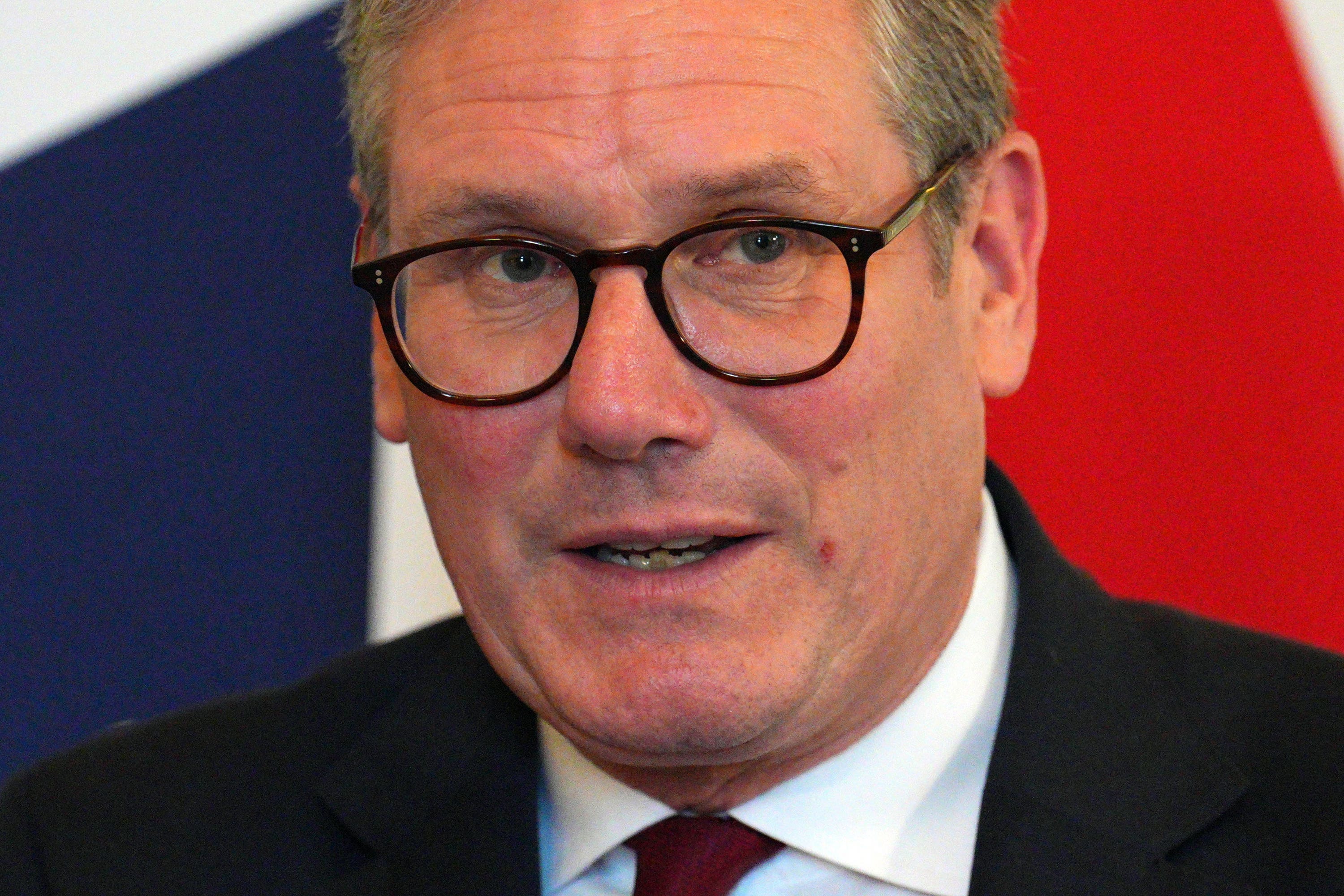The alarming rise of left-wing populism should put Labour on red alert
Keir Starmer has acknowledged the threat from populists on the right, such as Nigel Farage’s Reform UK – but not the opponents amassing on the left of the party, says Andrew Grice


The UK is “not immune” from the rise in nationalism and populism on the continent, Keir Starmer told The New Statesman’s summer party on Monday.
“Do not think for a minute that that could never happen here,” he said. “It could – and it might, if we fail in our project of delivering change, and our project of being a government of service ... that restores faith in the idea that politics can be a force of change.”
Although Labour intended before the election to be tough on crime and immigration once in government, Nigel Farage’s success on 4 July has reinforced that desire in spades. Reform UK has spooked Labour by coming second behind it in 89 seats, sparking fears that Farage could attract voters who are disillusioned with politics in general and with the Labour government in particular.
Yet there’s a danger that Labour does not pay enough attention to the equally serious threat it faces from the left – the Greens and independents, including pro-Palestine campaigners. Labour does not usually have enemies to its left, but will have to get used to it.
During the election, Labour was alive to the threat from the Greens, and feared that Thangam Debbonaire, then the shadow culture secretary, would lose to them in Bristol Central. But Labour was blindsided by the pro-Palestine campaigners. When Wes Streeting expressed concern that he might be under threat from one in Ilford North, Labour officials diagnosed a bout of “candidate’s nerves” – but Streeting was right: his 5,218 majority was cut to just 528, and Jonathan Ashworth unexpectedly lost in Leicester South to another such opponent.
Labour has acknowledged the Farage question, but said less about left-wing populism. This worries some wise Labour heads. Andrew Harrop, outgoing general secretary of the Labour-affiliated Fabian Society, said that at the next election, Labour “will be vulnerable to voters deserting to the Greens or Liberal Democrats, not just the Conservatives”. He added: “Keir Starmer will need to prove himself to voters concerned by global conflict, environmentalism and social justice – not just those who swing between Labour and the Conservatives.”
Although the two-child benefit cap will surely be scrapped eventually, there will be many similar demands – and even after Labour raises taxes in the autumn, the government will not have the money to satisfy its left-wing critics. I think Starmer was right to suspend the seven MPs who defied the government over the two-child limit. But it could compound his problem on the left.
Before the election, Starmer allies expected a band of left-wing MPs to rebel, lose the whip and hook up with Jeremy Corbyn – but were relaxed about the prospect. Even with a massive majority, they cannot afford to be so relaxed now. Corbyn – who retained his Islington North seat after being dumped by Labour – and the other four independents have already written to the seven Labour rebels. There are even rumours about a new hard-left party, perhaps built on Corbyn’s new peace and justice project, which might also attract the support of some left-wing trade unions.
Before the general election, it seemed unlikely that such a party would prosper under our archaic first-past-the-post system, but the volatility that swept away the Tories could do the same to Labour next time, if it fails to deliver. It would be a mistake for Labour to regard this year’s contest as a “Gaza election”; the independents did and will campaign on other issues.
The threat to the Conservatives from their right flank is more obvious, and Farage will cast a shadow over their leadership election. But the Tories lost almost as many of their 2019 votes to Labour and the Lib Dems (a total of 17 per cent) as they did to Reform (25 per cent) – and many more seats.
Yet leadership contenders pander to right-wing grassroots members. Tom Tugendhat, the One Nation candidate, has threatened to withdraw from the European Convention on Human Rights, a body he used to defend. A lurch to the right risks alienating the centrist voters the Tories need to win back. Policy positions that will win votes in the leadership election – such as favouring withdrawal from the Convention, and opposing net zero, wokery, and closer links with the EU – will not win over enough centrist voters at a general election.
Even if the Tories won back all the supporters who defected to Reform this month, “uniting the right” would not necessarily yield electoral dividends. Only three in 10 Tory voters said they might vote for Reform, with more prepared to switch to parties to the left, according to More in Common.
Nor can the Tories assume that the tactical voting against them this month was a one-off. Veering to the right will encourage it. Starmer will try to hug the Lib Dems close, and his non-aggression pact with Ed Davey seems to be holding, even though Labour is in power.
To win the next election, both Labour and the Tories will need to learn to look left as well as right.






Join our commenting forum
Join thought-provoking conversations, follow other Independent readers and see their replies
Comments